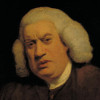“ A person may be affected with passion, by supposing a pain or pleasure to lie in an object, which has no tendency to produce either of these sensations, or which produces the contrary to what is imagined. A person may also take false measures for the attaining his end, and may retard, by his foolish conduct, instead of forwarding the execution of any project. ”
David Hume, A Treatise of Human Nature (1738). copy citation
| Author | David Hume |
|---|---|
| Source | A Treatise of Human Nature |
| Topic | pain passion |
| Date | 1738 |
| Language | English |
| Reference | |
| Note | |
| Weblink | http://www.gutenberg.org/files/4705/4705-h/4705-h.htm |
Context
“or when it discovers the connexion of causes and effects, so as to afford us means of exerting any passion. These are the only kinds of judgment, which can accompany our actions, or can be said to produce them in any manner; and it must be allowed, that these judgments may often be false and erroneous. A person may be affected with passion, by supposing a pain or pleasure to lie in an object, which has no tendency to produce either of these sensations, or which produces the contrary to what is imagined. A person may also take false measures for the attaining his end, and may retard, by his foolish conduct, instead of forwarding the execution of any project. These false judgments may be thought to affect the passions and actions, which are connected with them, and may be said to render them unreasonable, in a figurative and improper way of speaking. But though this be acknowledged, it is easy to observe, that these errors are so far from being the source of all immorality, that they are commonly very innocent, and draw no manner of guilt upon the person who is so unfortunate as to fail into them.”
source


